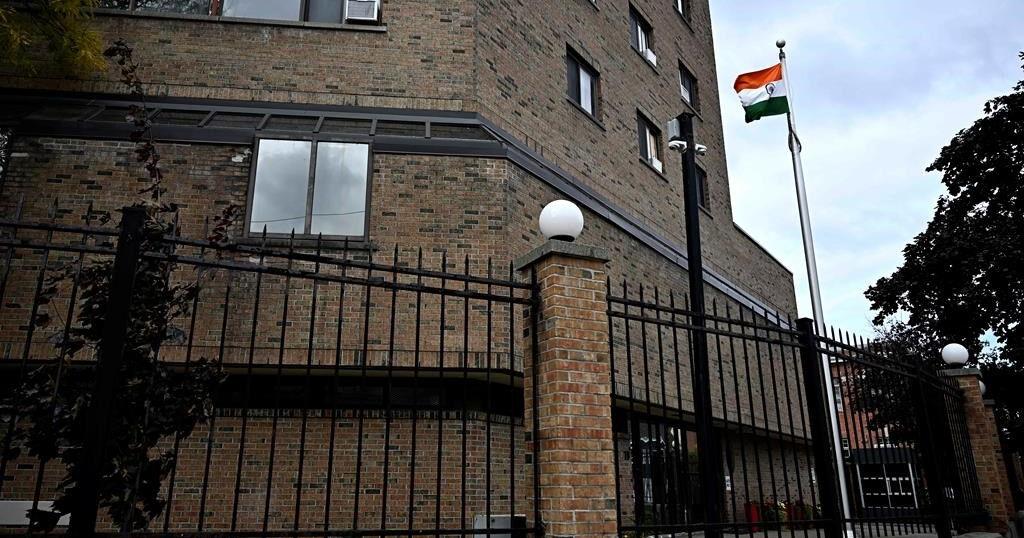OTTAWA – India’s consulate in Toronto is suspending some of its diplomatic visits to process paperwork at places like religious temples after violence between Sikh and Hindu people.
The violence started Sunday outside the Hindu Sabha Mandir in Brampton, Ont., where police allege people in the crowd were carrying weapons and throwing objects.
The next day there were tense protests outside the temple, leading to another police intervention and calls to ban protests at Brampton religious sites.
The clashes have involved Hindu groups clashing with Sikh separatists, who have protested visits by Indian consular officials to process paperwork for matters such as pensions.
The violence has further heightened tensions between Ottawa and New Delhi after Canada expelled six Indian diplomats last month when the RCMP flagged them as persons of interest in alleged crimes against Canadians.
India’s Toronto consulate says it’s suspending some of its announced site visits, but did not specify which ones have been cancelled.
“In view of the security agencies conveying their inability to provide minimum security protection to the community-camp organizers, (the Toronto) consulate has decided to cancel some of the scheduled consular camps,” the consulate said in a post on X.
The consulate’s website lists planned visits in places like Brampton, Mississauga, Halifax, Windsor and London, Ont.
India’s high commission in Canada did not immediately respond when asked if its Ottawa mission or Vancouver consulate had also suspended consular visits. Officials in those missions have announced what they call “consular camps” across the Prairies this weekend, as well as in Montreal and parts of British Columbia later this month.
Sikh separatists, who advocate for an independent country called Khalistan to be carved out of India, have alleged Indian diplomats use their temple visits to recruit informants to target Khalistan supporters.
While the Canadian government has refused to identify the diplomats it expelled, the federal government does maintain a database of diplomats who are accredited to Canada. That database was updated a week after the expulsions were announced on Oct. 14, and six names that were previously on the list had been removed.
That includes High Commissioner Sanjay Kumar Verma and Toronto consul general Siddhartha Nath. The websites of each Indian mission now list interim replacements for both positions.
The database also previously included Bikram Pal Singh Bhatty, a first secretary at the Ottawa high commission, as well as Toronto consular officer Dheeraj Pareek, Vancouver consular officer Rahul Negi and a Vancouver consular employee named Kanwaljit Singh.
Global Affairs Canada would not confirm whether those were the names of the six diplomats who were expelled.
“We are not in a position to provide the names of the six Indian diplomats that are now considered persona non grata. We can confirm that they have left Canada,” wrote spokeswoman Clémence Grevey.
India’s foreign ministry listed the names and ranks of the six Canadian diplomats it also expelled; both countries claimed they had ordered expulsions first.
Yet the spokesman for India’s foreign ministry, Randhir Jaiswal, refused to identify the six diplomats Canada expelled, when asked at an Oct. 17 press conference.
“For various reasons, we don’t want to reveal their names to you,” he said.
This report by The Canadian Press was first published Nov. 7, 2024.
